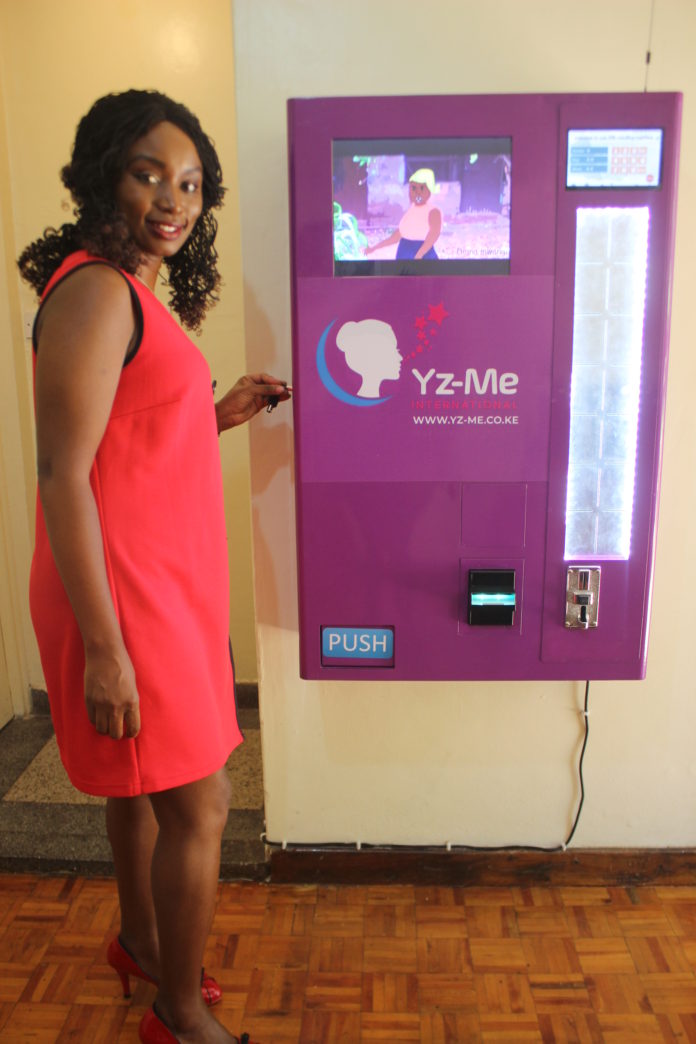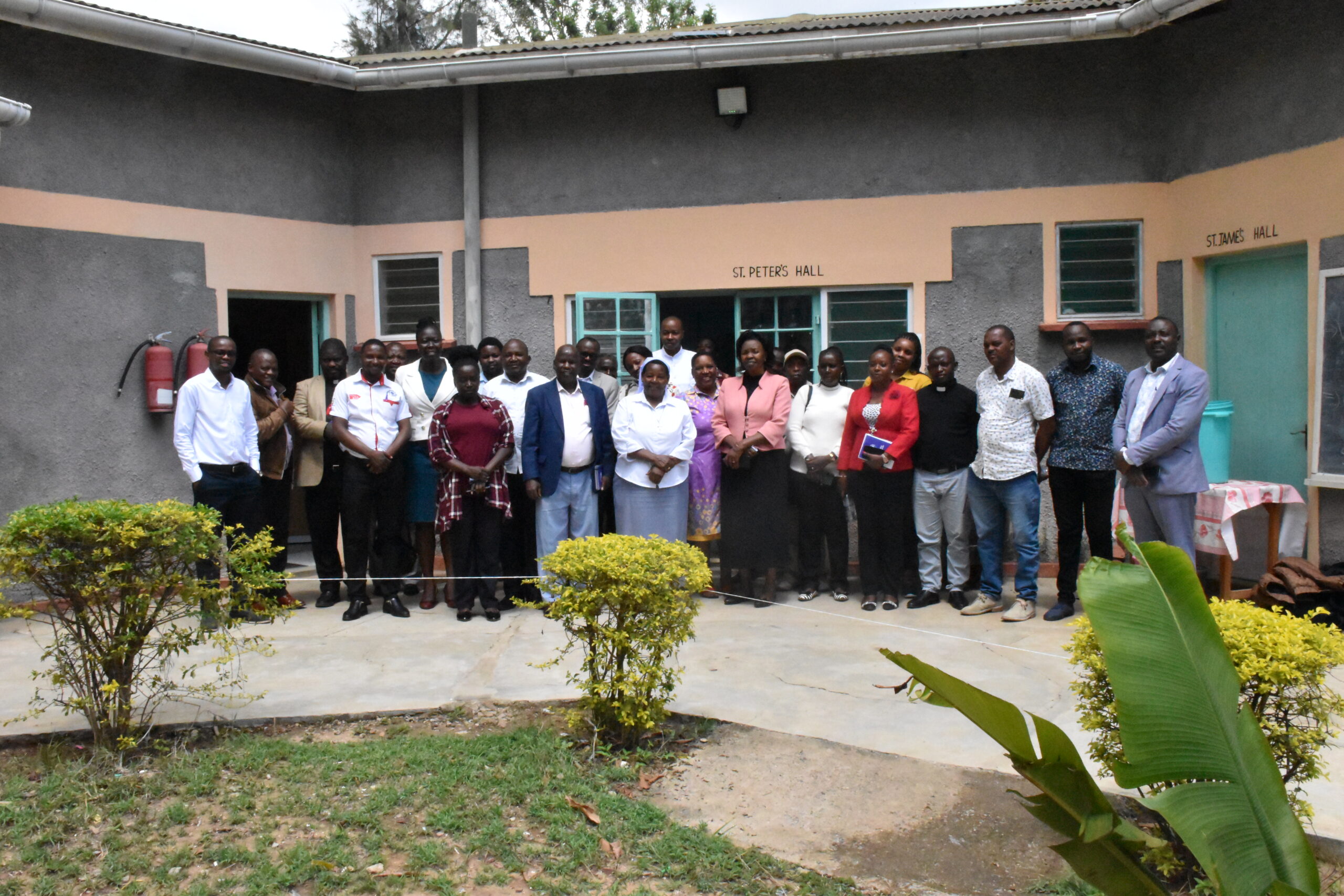By Lilian Museka
According to UN Educational, Scientific and Cultural Organization (UNESCO) approximately 50 percent of school going girls do not have access to sanitary towels therefore forcing them out of school during this period.
During the 2017-2018 budgets, the government of Kenya allocated Ksh. 470 million to sanitary towels that were to be provided to school girls free of charge. However, the implementation was very slow causing many beneficiaries to lose out. There was no mention of the same in 2018-2019 budgets though in 2016, the government removed duty charged on raw materials used to produce sanitary towels.
In 2017, President Uhuru Kenyatta signed into law the The Basic Education Amendment Act in to a Bill that among other necessities, it places the responsibility of providing free, sufficient and quality sanitary towels on the government in order to reduce the number of girls missing school during their menstrual cycle.
Data from the Ministry of Education indicates that a girl absents from school for four days in 28 days loses 13 learning days equivalent to two weeks of learning in every school term. In an academic year (nine months) a girl loses 39 learning days equivalent to six weeks of learning time.
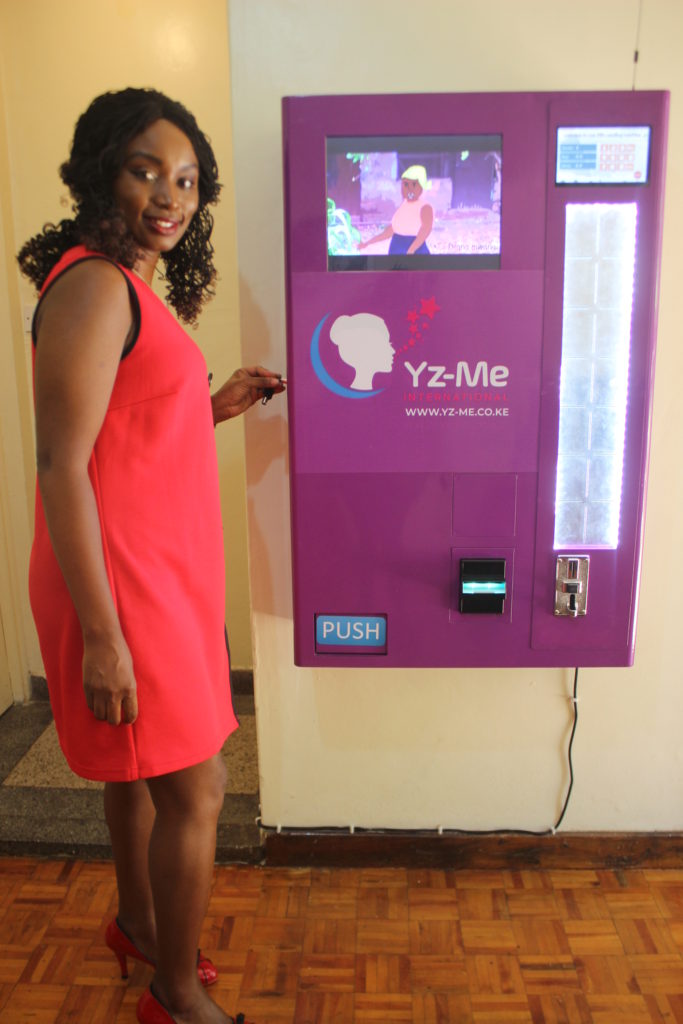
Linda with the Prototype dispenser
Despite the good laws in place, the reality on the ground is that few girls receive the sanitary towels and accessibility is a big problem. Older women are also not left out as in the event of emergencies; the commodities may not be reachable, thereby throwing them into a panic mode, forcing them to use unhygienic methods.
A typical example is when in 2017, Linda Njeru, the now Chief Executive Officer (CEO) of YZ-ME International was travelling from a holiday in Indonesia with her family. “Three hours after takeoff, I suddenly felt a flow and quickly took off to the nearest washroom on our aisle. It was then that I realized that the time of the month had come. I only had one pad in my carry-on bag which I survived with till we were on transit at Dubai International Airport (DXB).”
Lynda was so unfortunate to find that the duty-free shops mostly specialized in selling perfumes and souvenirs and not the precious commodity. “Monthly periods are personal and so one must be brave enough to even ask the crew on board for help when faced with the emergency period. Woe unto you if its an ‘All Male crew’ flight,” she adds
“If you walk into any bathroom now you notice that there are bins for used sanitary towels in the female bathrooms and dispensers for condoms in men’s bathrooms. It was regrettable that such a high-flying airport did not have menstrual hygiene solutions on sight.
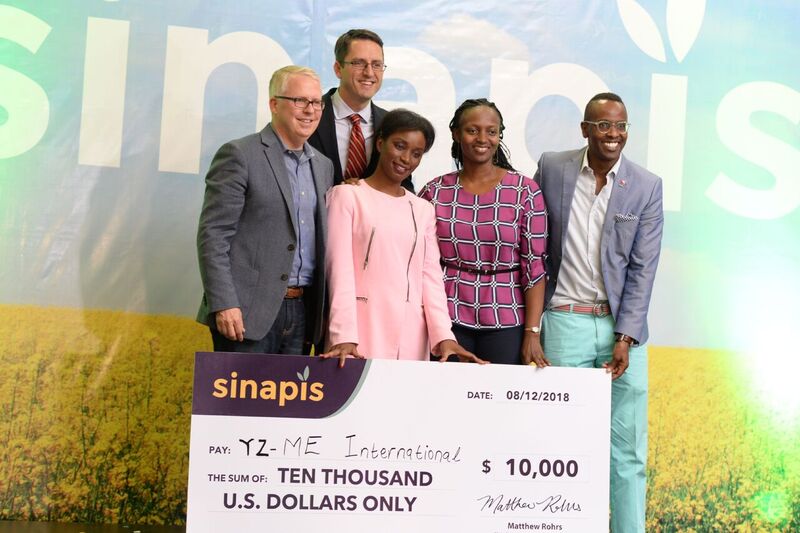
Linda with Sinapis Officials and family when she worn the 10,000 dollars during the Business Competition
On board, we had dispensers for sanitizers and tissues but none for sanitary towels. If I didn’t have the pad in my bag I would have been forced to use unhygienic means but fortunately, that awful experience left me with a great idea to work on. This is how YZ-ME International was born.”
YZ-ME International is a young company that is bringing hygienic menstruation to Kenya’s public space. They specialize in the strategic installation of Menstrual HygieneProducts dispensers in public washrooms areas including airports, colleges/universities, prisons, restaurants, schools among other areas.
The core purpose of YZ-ME is to satisfy an immediate need for women who ran out of hygienic menstruation products at any time of the day hence meeting their needs during emergencies.
Lynda’s situation explains what women go through during their emergency times and with no one to turn to, they end up staying with a pad or tampon for long periods or using unhygienic products like tissue papers that place them at risk of infections which may pass through the vagina cavity and enter the blood stream thereby causing serious health impacts, according to a Nigerian Medical researcher Dr. Bamidele Iwalokum.
Lynda says the dispensers dubbed OopsFree!! come in handy to help women fight stigma. “We strive to offer a piece of mind to women around the world by improving access and availability of feminine hygiene solutions.” She adds.
“The dispensers are fitted in the washroom areas and are purely designed for use by the local market allowing users not only the convenience of easily purchasing of sanitary products whenever and wherever they need. We provide immediate access to sanitary towels to meet the menstrual emergencies at the drop of a coin,” adds Lynda.
The dispensing machines are also fitted with Audio visual display interface allowing for live or on demand streaming of various forms of advertising content; the prototype is already on test with the pilot to be rolled out by May this year.
“We have already secured various locations and are certain that we are moving in the right direction. We would like to have an impact in the society by bringing dignity to women during their menstrual emergency by eradicating the ‘Oops! Moments’. My main goal is to ensure that no woman of menstruating age will ever walk again with shame on her dress in search for a menstrual hygiene solution,’ says Lynda who is very optimistic that the business will pick up.
The company is also in talks with various Airlines to have the machines installed in the aircrafts. Lynda is confident that after her ordeal, the airlines will buy into her idea.
YZ-ME is also looking to partner with manufacturers, the government and other stakeholders to have the vending machines installed in schools and prisons, to ensure the marginalized women have access to sanitary towels.
“If the government can partner with us, we will ensure the free sanitary programme is a success as our work will be to ensure the machines are always stocked with the sanitary towels. Currently the programme is seemingly challenging as provision is not always forthcoming in many schools.
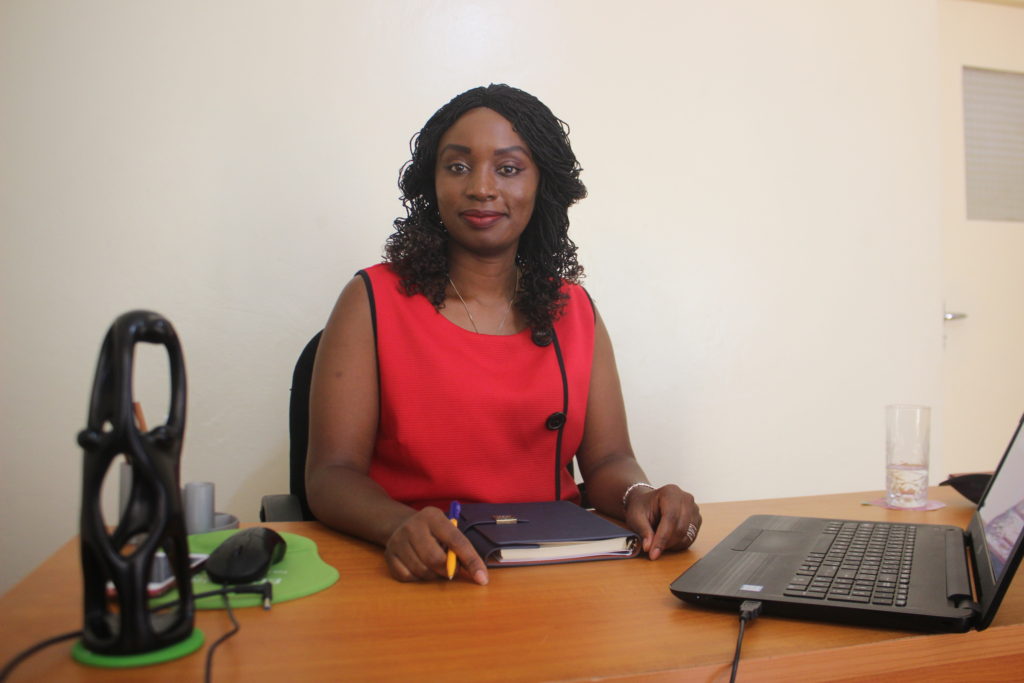
Linda Njeru, the now Chief Executive Officer (CEO) of YZ-ME International
YZ-ME has though had its fair share of challenges which Lynda lists as costs of acquiring the machines are too high and acceptance being a new entrance into the market. She also adds that getting manufacturers to customize the machines is seemingly becoming a challenge. “Different sections require different sizes of machines and it becomes a challenge when we import only to find that they are either too big or small for some areas. We however are working to ensure that we send out specific evaluations to manufacturers,” she adds.
The company also plans to launch a mobile app that will be used by members to locate the nearest vending machines. “Once you sign in, you will be able to get information on the nearest machine in times of emergencies. We also plan to work in partnership with professional doctors who will be able to answer questions from members concerning health issues around menstruation,” Lynda says.
Lynda’s passion for the business is coiled on her profession as a travel agent who likes meeting different personalities and helping solve their issues. She emerged the winner of 10,000 dollars (Ksh 1 million) from the 2018 Sinapis Business Plan Competition. Her business, YZ-ME International won the prize after being considered as an entrepreneurship that positively impacted on the environment and society at large, from nine other entries. This win she says further validated that her business idea was not only unique but also long overdue.
Sinapis is an accelerator program for early stage to mid-stage entrepreneurs that provides intensive training at the advanced MBA level in partnership with Acton School of Business.

